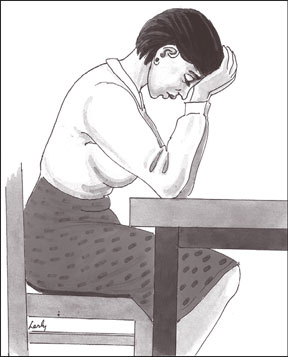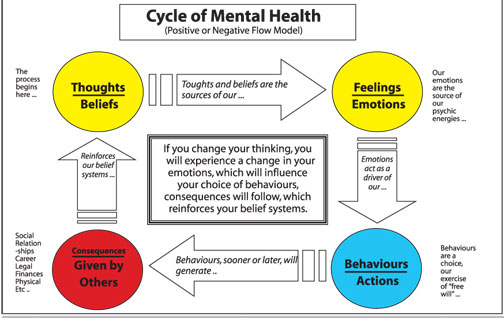|
District Mental Health Movement:
A Silent Revolution in Sri Lanka
Nalaka MENDIS-Emeritus Professor of
Psychiatry, University of Colombo
During the last few decades, the governments of many countries have
increasingly recognised the pain, distress, disability, death, burden,
stigma and economic loss due to mental disorder on both the individual
and the family. Mental health systems have evolved to meet these
emerging trends by significantly reforming the traditional centralized
psychiatrist-oriented mental hospital-based specialized care.

Emerging changes include increasing emphasis on psychosocial distress
and mental health, providing more accessible care through local
delivery, widening of interventions to include a range of psychosocial
approaches, increasing integration of mental health into general health,
involvement of general health workers and others having psychosocial
orientation in mental health activities, and broadening the
responsibility of different sectors to contribute towards mental health
development.
Health services
Over the past years Sri Lanka has attempted to introduce such
developments through far reaching recommendations by Professor Edward
Mapother in 1938, Dr. W G Wickremasinghe in 1966 and again through a
series of informal initiatives during the nineteen eighties and
nineties.
These developments could not be implemented or sustained fully for an
adequate period of time to bring about any meaningful reforms to improve
mental health care or access to services. This was largely due to a
failure of successive governments to develop long-term implementation
strategies which led to a dearth of professional staff and inadequate
allocation of funds.
As a consequence mental health services stagnated and sometimes even
regressed over the years. The Angoda and Mulleriyawa mental hospital
complexes continued to provide valuable services for the chronically ill
and acutely disturbed patients from different parts of the country
because facilities for such patients were not available at provincial
and district level centres. In the absence any initiatives by the
government to improve access to mental health services, most
psychiatrists opted to focus on clinical work and maintain their
professional status making use of the little resources available within
the service.
Can the present government which is committed to develop the country
in an equitable manner by uplifting deprived communities and regions
reverse the above trend? This will entail accepting the challenge of
providing the necessary leadership, resources and a development strategy
to upgrade and upscale the emerging 'district mental health movement'
which has been unfolding during the last decade?
Social care workers
This new mental health movement aims to provide comprehensive mental
health services targeting the needs of those living in a given
geographical unit or a district.
This unique movement with great potential has led to a major
improvement in access to mental health care during the last decade.
What is unique about the district mental health care movement in Sri
Lanka? For the first time in Sri Lanka an attempt is being made to
provide comprehensive services within the district to meet the needs of
those living within its boundaries.
Community-oriented activities
To realize this objective the approach to care has gradually changed
from an 'institutional and psychiatric focus' to one based on
'community-oriented, person centered' mental health care.

This process entails providing a range of services including
curative, preventive, promotional and rehabilitative services aimed at
the population in a given district.
While psychiatrists and medical officers with a shorter period of
training in mental health have made an attempt to provide care for the
mentally-ill they also together with the general medical staff, public
health staff and social care workers have attempted to provide mental
health services to the individuals and communities.
The present local movement evolved organically by the initiative of a
group of psychiatrists who apart from engaging in their routine clinical
work undertook a series of initiatives to improve access in response to
the local needs of communities based on universal principles.
This process of integrating mental health services into general
health care, public health services and social welfare has resulted in a
large pool of workers acquiring necessary skills to respond to mental
health needs of the individual and the communities.
For generations mental health care has been synonymous with Angoda
and Mulleriyawa mental hospitals. The silent shift of mental health
service provision through general, provincial, district hospitals,
outreach clinics and health centres has not been recognized by many.
The improvement of access to basic mental health services resulting
from this shift has helped those living in remote areas of the country
thus minimizing the need for them to travel to Colombo or other big
cities seeking care. The benefit of this development has mostly been to
those in greatest need coming from socially and economically
impoverished backgrounds living in remote areas.
Very few countries in the region and elsewhere with similar
socioeconomic conditions can match Sri Lankan achievements in providing
basic services to its people.
Medical officers
Most district leaders including psychiatrists and provincial
administrators increasingly see as their responsibility to provide a
range of services within the district. District mental health teams and
committees have evolved and are functioning.
Over the last decade all districts have established at least basic
services consisting of one or more inpatient units, a large number
outpatient and outreach clinics and other specialized services including
for alcohol dependence, childhood mental illness, and rehabilitation and
counselling services.
Apart from the above individual services community-oriented
educational and promotional activities have also been initiated in many
districts.
The professional staff including psychiatrists, medical officers in
mental health and diploma holders amounting to more than two hundred and
fifty conduct services in different locations in the district in order
to provide services close to the homes of patients in collaboration with
public health services, social and community agencies. Many districts
have established self help groups to facilitate advocacy and support
activities.
The strengthened and more visible Mental Health Directorate now
located in the Ministry premises facilitates district level activities
by coordinating and reviewing the district services. International
organisations now provide direct grants and other resources to districts
unlike in the past. Though information is sparse it is estimated that
out of those consulting public services more than nearly eighty percent
make use of local psychiatric facilities.
This transformation is largely an outcome of a responsive and
development-oriented decisions of the Ministry of Health based on a
healthy partnership between the Ministry, the professionals and the
community agencies with the leadership of the President of Sri Lanka at
the time and the Minister of Health. Dr. A. Beligaswatte then
Director-General of Health Services created a responsive climate for the
professionals to test out their approaches and later when found to be
successful decided to integrate such approaches to the regular health
services. Such initiatives included the establishment of a cadre of
Medical Officers of Mental Health, and Diploma in Psychiatry programmes,
facilitation of district based services, empowerment of the Mental
Health Directorate and allocation of resources to develop local
services.
The result was the gradual emergence of provincial and district level
service networks provided by the district level mental health team
supported by the district administration. The psychiatrists who
pioneered the district concept also inspired a new generation of
psychiatrists and administrators who continued the reforms necessary to
improve access to care.
Today even the Mannar district has an inpatient psychiatric facility
with four outreach clinics. The Badulla district, in addition to an
inpatient facility, has more than 20 outpatient and outreach clinics
spread out in the district. The picture is similar in many other
districts but this has not been a uniform achievement throughout the
country - there are districts where the reforms are marginal. In a few
districts in the absence of a qualified psychiatrist the services are
provided by the medical officers of mental health or those with diploma
in psychiatry qualifications. In contrast almost all major hospitals in
the western province have qualified psychiatrists with support staff.
The major determinants of success of the district mental health
movement include the degree of enthusiasm and commitment of the district
psychiatrist to improve access, his loyalties to the district in which
he serves, the degree of cooperation extended by the Regional Director
to develop the district network of services and the availability of
regional funds.
We in Sri Lanka need to evolve a modern, accessible, affordable and
high quality mental health service to meet the changing mental health
needs of the whole population. There is now strong evidence to suggest
that in Sri Lanka basic, general and most of the special mental health
services could be provided at the district level.
A competent and a well trained workforce based in the districts,
adequate facilities and the necessary funds are absolutely essential to
develop and sustain such a district service by up scaling and upgrading
the present district mental health movement. We cannot ignore the fact
that the success of the mental health programme also depends on the
extent of input from original research, high quality training, highly
specialized clinical services and good management strategies.
Such activities should be the responsibility of special centres or
units managed by those with competence and expertise who are able to
think creatively and innovatively on the basis of evidence. In an era in
which mental health issues are coming to the fore of health care it is
important for the government to bring about the necessary reforms to
upgrade and upscale the present services so that the benefits of new
developments are accessible to all citizens of in Sri Lanka. |





